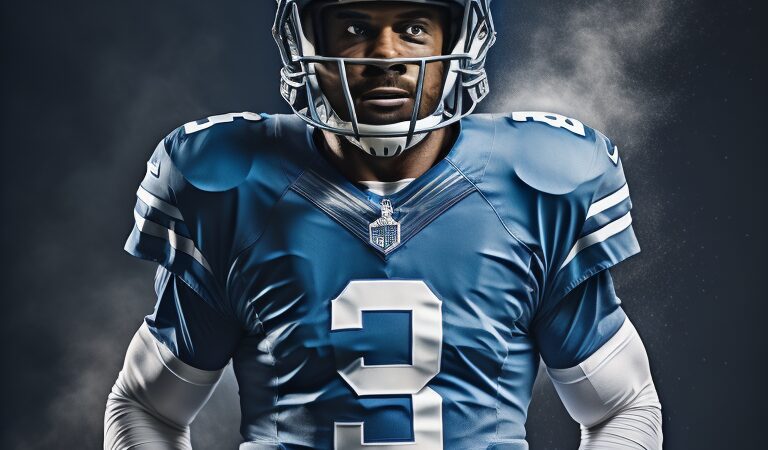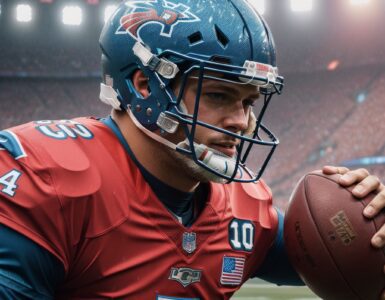The National Football League (NFL) is North America’s most popular sport and its richest.
Of course, there are those that love the NBA Basketball, or the NHL Ice Hockey or Major League Baseball (MLB). Those sports are all fine and dandy too.
But nothing is as good as the National Football League. Certainly not in terms of excitement and as a spectacle.
Yet for some Brits, they cannot bring themselves to like it. Often coming up with a staggering number of odd excuses to explain why.
Only these reasons are often based on flawed logic, incorrect assumptions, or just pedantry.
As bettors, we know that sites like bet365 Sport offers an outstanding range of NFL bets each year. But there is so much more about the game that appeals more than simply betting.
Or offers such as the Multi-Sport Acca Boost.
So, let’s now show you how to refute the nonsense espoused by some Brits who hide behind their misunderstandings of the game.
The Top 5 British Moans About The NFL
1.”The National Football League Rules are Far Too Complicated…”

On the face of it, this seems to be a fair comment. The National Football League does have complicated rules. But so does Rugby Union, or football (For example, does anyone really understand the handball rule in soccer now?).
Bashing the NFL because the rules are complicated is in effect saying something else. You can’t be bothered to learn the rules.
If you examine the rulebook for the National Football League, then it is a lengthy list, but nobody reads the whole “Laws of the Game” before they play a game of soccer. It is exactly the same with the NFL.
In fact, you can sum up the main rules of the game as follows: –
- The team with the ball is on offense. Their job is to score points by moving the ball downfield either by passing the ball through the air, or running the ball on the ground.
- The team without the ball is on defense. Their job is to prevent the other team’s offense from scoring and, if possible, win the ball back by either forcing the opposing player to drop the ball (a fumble) or by catching a pass intended for a player on offense (interception).
- The team on offense has four downs to move the ball 10 yards. After each down, the number of yards made is subtracted from the total they need to get on the next down. So for example, first down and ten, means it is the first down and the team needs to move the ball ten yards. If on the next play they move the ball forward three yards, the next down would be second down and seven. These can be shortened to “First and Ten” and “Second and Seven”.
- Usually, if after three downs the team has not moved the ball the required ten yards, they will kick (punt) the ball away as far downfield as possible. This will mean the third part of each team, Special Teams, takes to the field. The punting team for the offense and the receiving team for the defense.
- Once possession changes hands, the team that was on defense now sends out their offense, and the team that was on offense now sends out their defense.
- You can score 6 points by either running into the endzone, or catching a pass in the endzone, which is a touchdown and scores six points.
- After a touchdown you can elect to kick an extra point for 1 additional point, or go for a 2-point conversion, which is like trying to score a touchdown once again a short distance from the endzone. If this is converted, it scores 2 points.
- Teams can also elect to try and kick the ball through the uprights to score points. This is a Field Goal and scores 3 points regardless of how far the kick is from the posts.
- There is a drop goal option which also scores 2 points, but this option is rarely, if ever used in the modern National Football League.
That is the basic gist of American Football and in truth, it is a lot less complicated than the rules for some other sports.
2.”The Games in the National Football League Take Hours To Play…”

I always find it odd that American Football is often criticised in the United Kingdom for taking 3-4 hours to play a game.
This from the home of the sport of cricket. In some forms cricket can take five days to play, sees the players run off field if it starts raining or if it is ‘bad light’. The players take a break for meals and drinks during the game. And at the end of it, the game can still be a draw despite one team scoring 700 runs and the other just 300, but still having a couple of people left to bat.
However, the truth of the matter is that British people don’t understand the National Football League culture. Especially that of attending games.
In the UK, people attend a football game and might have a pie. In. the United States, tailgating is hugely popular and a massive part of the build-up to the game. It is a huge social event. The game that follows is just the continuation of that.
The National Football League is, for many fans, not a game taking place at a certain time. It is an event that is enjoyed across the whole day.
So, in that respect, three or four hours isn’t that long in reality.
3.”The Players Wear All That Protective Clothing…You Don’t See That In Rugby…”
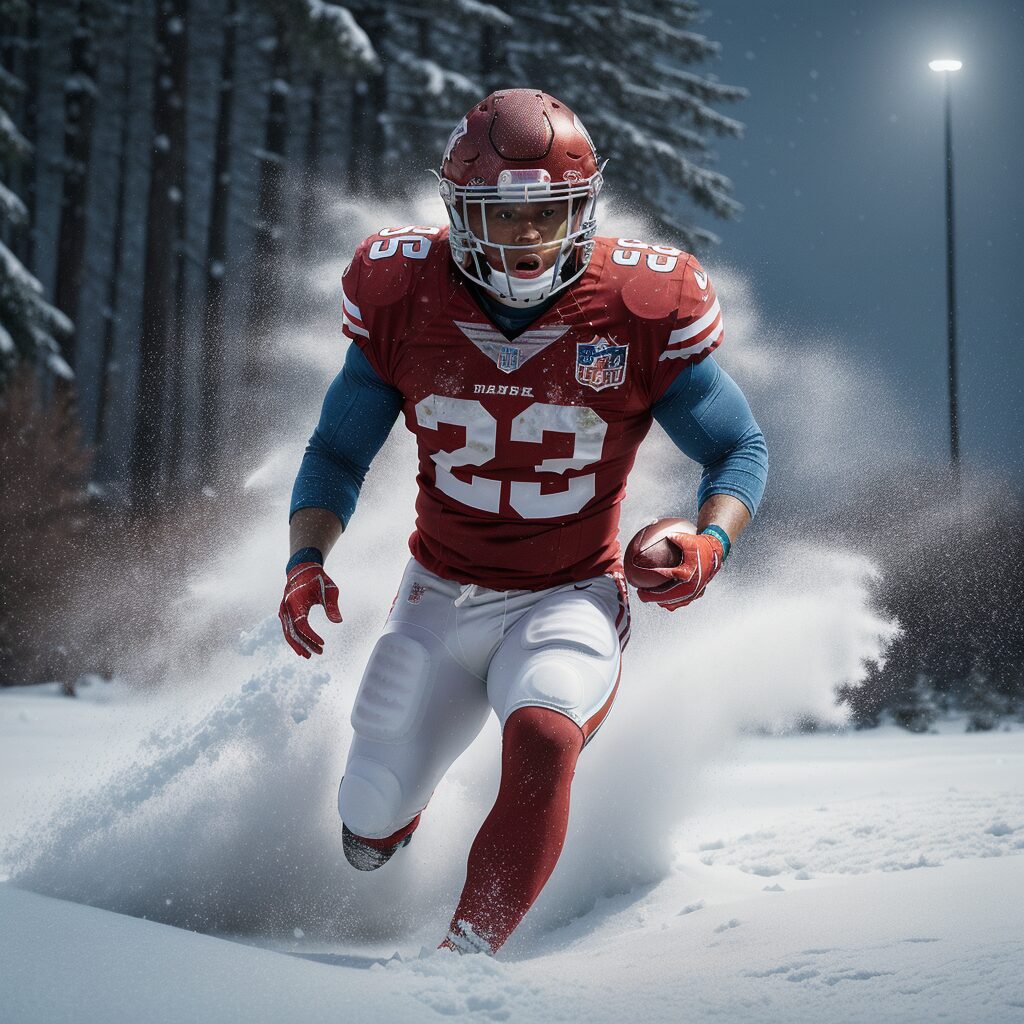
This comment is the one that really grinds my gears more than any other. The implication being that players in the National Football League are not as tough, or as ‘hard’ as those that play rugby. Simply because they wear pads and a helmet.
There is a very good reason for that.
In a game of rugby, you will seldom see a player, especially one of the bigger forwards, break out into full pace. The modern game of rugby is often played by teams mauling and rucking, where they barely break out of a fast jog before they are tackled. Tackles conducted at full pace are relatively rare in most forms of Rugby nowadays.
That is exacerbated by the fact the game runs continuously for the most part with players unable to take a break.
However, in the NFL, every single play is played at 100% pace. That’s because there is at least 40 seconds or so between plays in most cases, sometimes more when penalties or timeouts are called. During which players can recover. This means every play is played at 100% speed and 100% intensity.
That does not happen in Rugby. And if you think wearing a helmet and pads while being tackled by a 6ft 8 inch lineman who weighs 340 pounds, when both going full pace, is not tough, then I suggest you ask former Rugby Union star Louis Rees Zammit about how hard the tackles are in the NFL.
4. “What Is With All These Positions? I Mean Tight End? What Does That Mean?!”
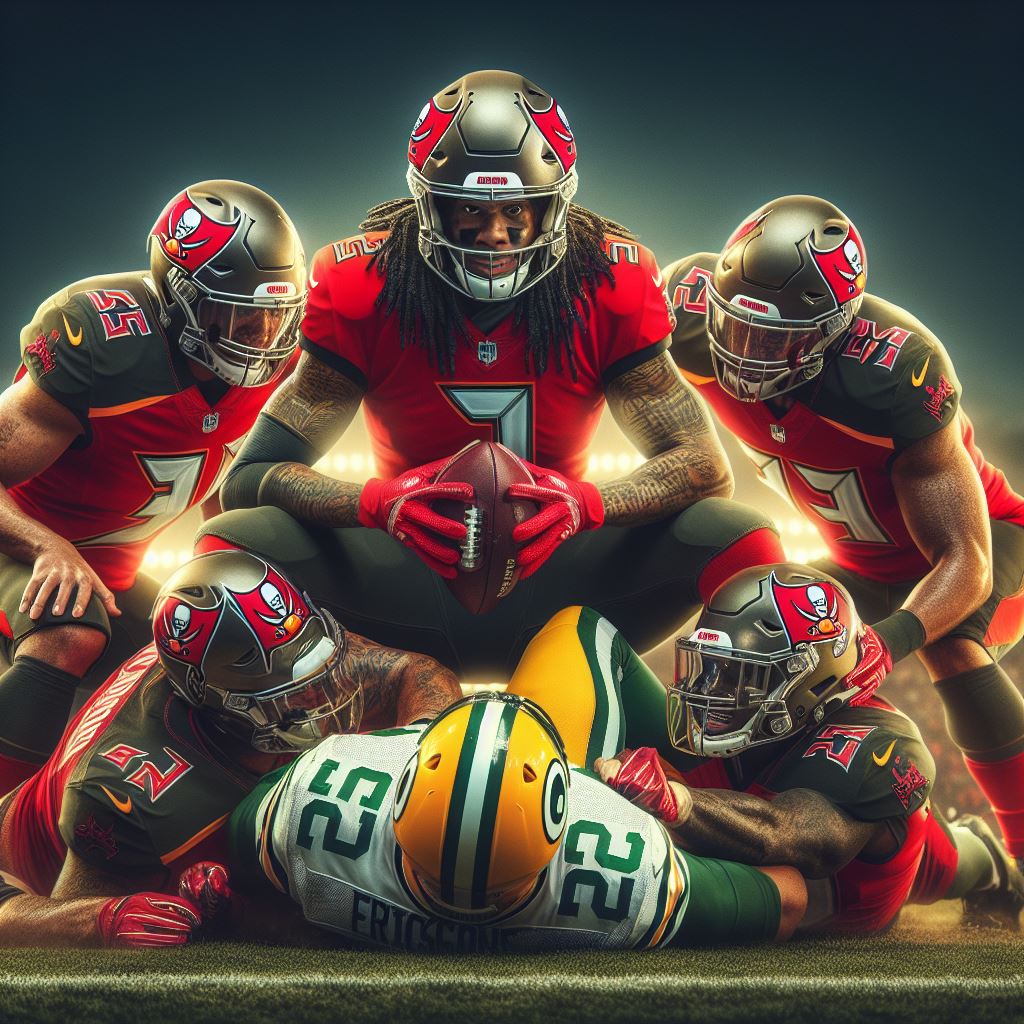
Again, this is another nonsensical complaint. And one that conveniently forget that many UK sports have somewhat odd position names.
Silly-Mid-On? Nightwatchman? Hooker? Prop? Scrum Half?
In American Football, it is very easy to understand the positions on offense, special teams and defense. They are as follows:
Offense
- Quarterback (QB) – The leader of the team, the person who receives the snap and throws the ball or hands it off to the running back.
- Running Back (RB) – The player that takes the ball and tries to run forward with it to gain yards.
- Full Back (FB) – The most thankless position on the team. A full back, when used, tends to be just a blocker for the running back, trying to clear a path through the defense for the RB to follow.
- Wide Receiver (WR) – A player that specialises in catching passes from the quarterback. They are usually quick with an ability to catch the ball in different situations.
- Tight End (TE) – A player that sometimes blocks defensive players but can also be assigned to catch the ball.
- Offensive Tackle (LT or RT) – These are often the biggest players in terms of size on the team (with the exception of Nose Tackles) and are assigned to protect the quarterback when passing, or to block defenders on run plays. Each offensive line has a right and left tackle.
- Guards (LG or RG) – These play inside of the two tackles next to the centre, they too protect the quarterback and block defenders trying to open up holes for the running game. As with tackles, there is a right and left guard on each O-line.
- Centre (C) – The centre is the player that starts each play on offense with the ball and they snap it back to the quarterback. After that, their job is to block defenders or create a lane for a running back to get through.
Defense
- Defensive Tackle (DT) – One of two players that line up in the centre of the defensive line. Their aim is to fill gaps in the line or get into the backfield to stop the run and/or pressure the quarterback.
- Nose Tackle (NT) – A specialist position where a team operates a 3-4 defense (3 defensive linemen and 4 linebackers) instead of a 4-3 defense. A Nose Tackle is generally a huge, powerful human being. Check out Vince Wilfork for a good example.
- Defensive End (DE) – A player that operates from the outside of the defensive line and whose job is to stuff the run and pressure the QB. These players are interchangeable nowadays with edge rushers (EDGE).
- Linebackers (MLB, ROLB, LOLB)– These are the three or four players that operate behind the offensive line. Their jobs include all kinds of defending from stopping runs and passes, filling gaps on the line, chasing receivers and more. There’s Left, Right and Middle Linebackers.
- Cornerback (CB) – A small, speedy defender whose job it is to engage with receivers, match them for speed and break up passing plays. They are also often used to blitz the quarterback due to their great speed.
- Safety (SS or FS) – A player that operates deeper in central positions whose job it is to read a play and then support team mates by reacting to the play. There’s two types of safety, a Strong Safety and Free Safety.
Special Teams
- Kicker (K) – The person who takes all extra point and field goal attempts.
- Punter (P) – The player that kicks the ball downfield on fourth down.
- Long Snapper (LS) – The player that snaps the ball a long way for the punter to kick the ball downfield.
- Kick Returner (KR) – Usually a wide receiver or corner back or running back who is very quick and who can catch the ball and run downfield, finding spaces to advance the ball on a return.
- Holder – Not technically a position, but this is the person that holds a snapped ball for a field goal or extra point attempt. It is usually the job of the backup quarterback.
5. “It’s the Only Game I Know That Has Different Teams for Attack and Defence!”
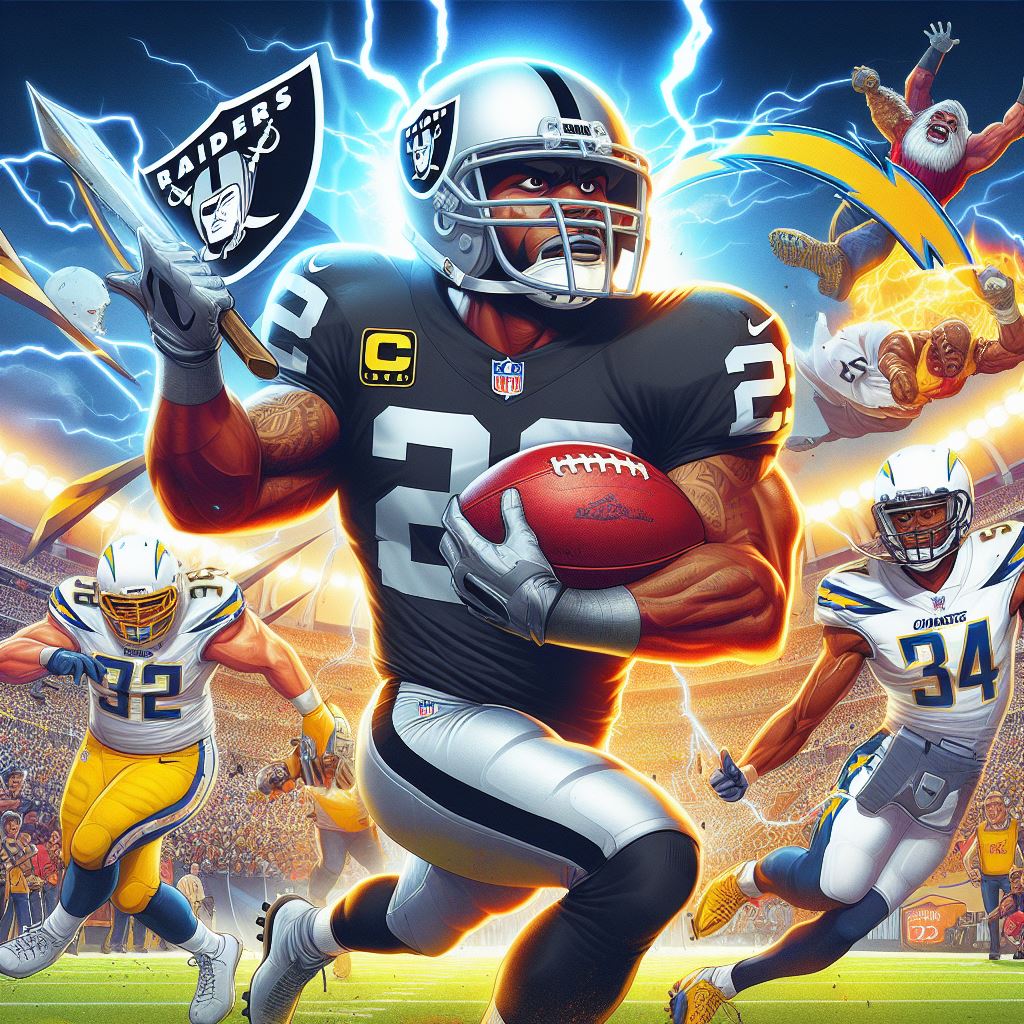
To state this is to show a lack of understanding of just how physically demanding playing in the National Football League is. It is incredibly rare nowadays for a player to play on Offense and Defense simply because the physical workload is just far too much.
The amount of energy expended by each player on each play is huge, which means that when possession changes hands, those players get a rest and a chance to recharge their batteries when they are next called upon.
Furthermore, players play in specialised positions. You would not want to see Harry Kane playing in goal would you?
Additionally, there are so many different types of players in the NFL, that it would be impossible to play with just the same 11 men. You can have cornerbacks that are 5ft 7 and weigh 140lbs but lightning fast, or you can have a Nose Tackle who is 6ft 5 and weighs 350lbs. Some tackles regularly reach 6ft 8 or even 6ft 9 inches tall.
So there’s a good reason why the National Football League teams have attack and defensive parts of the roster. And long may it continue.



